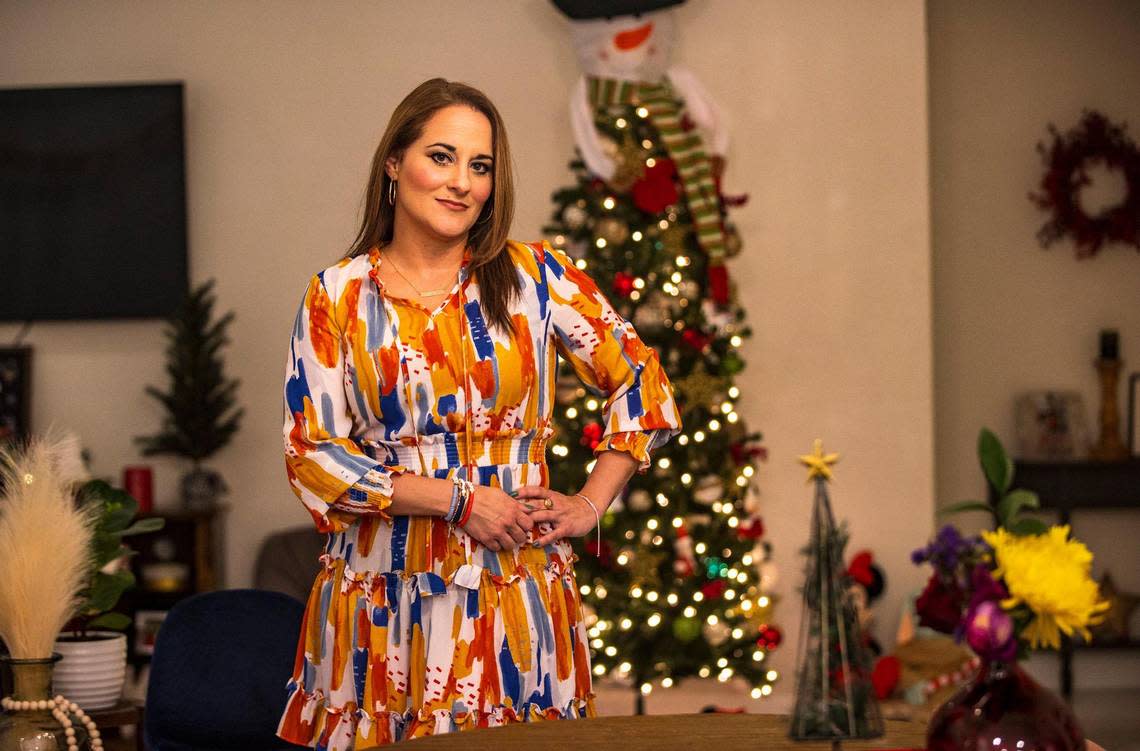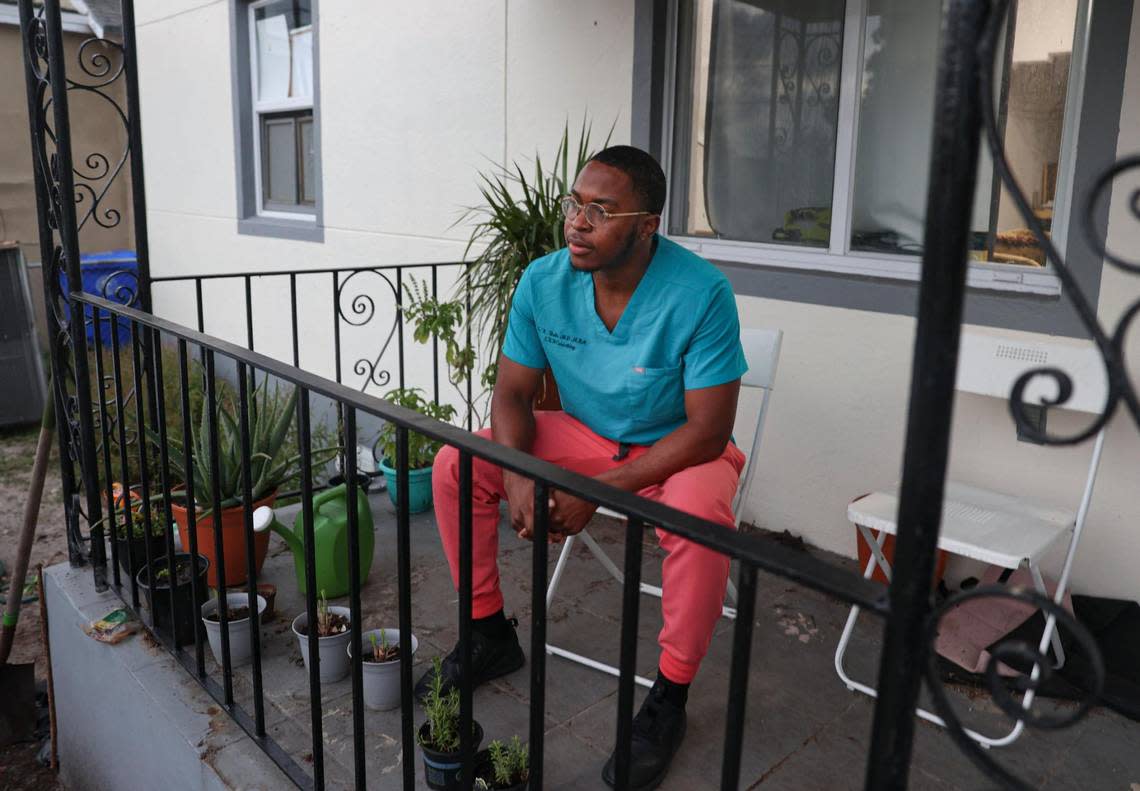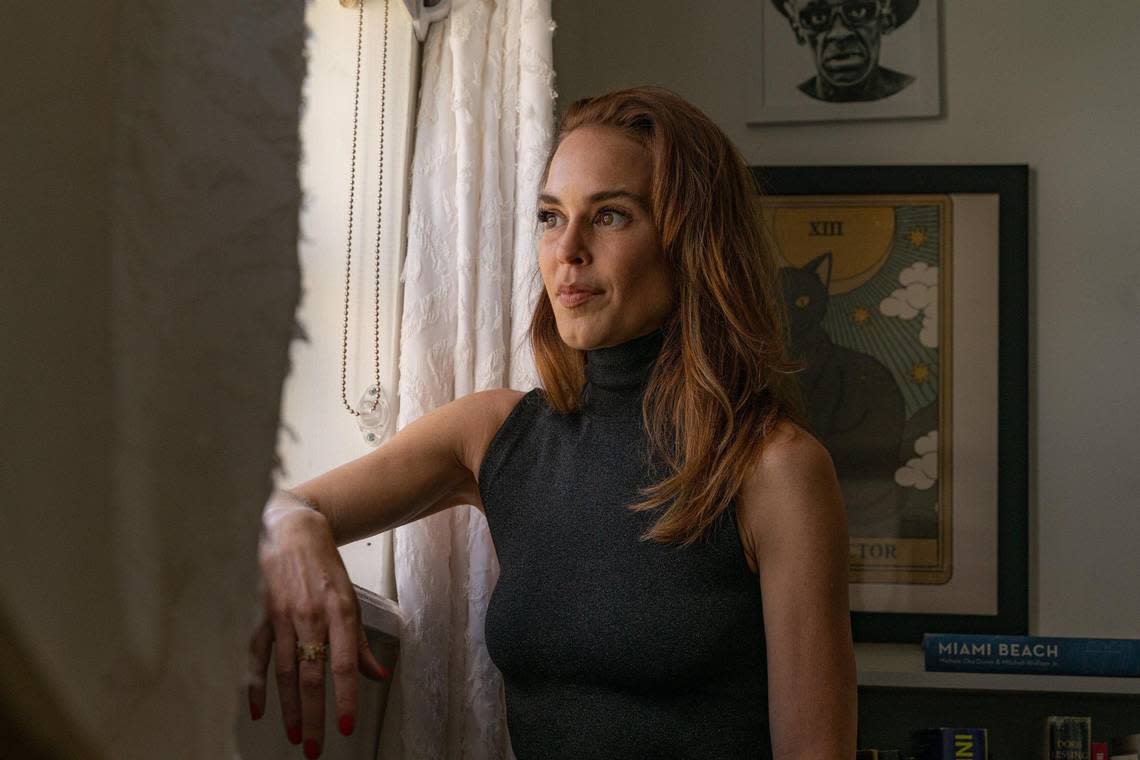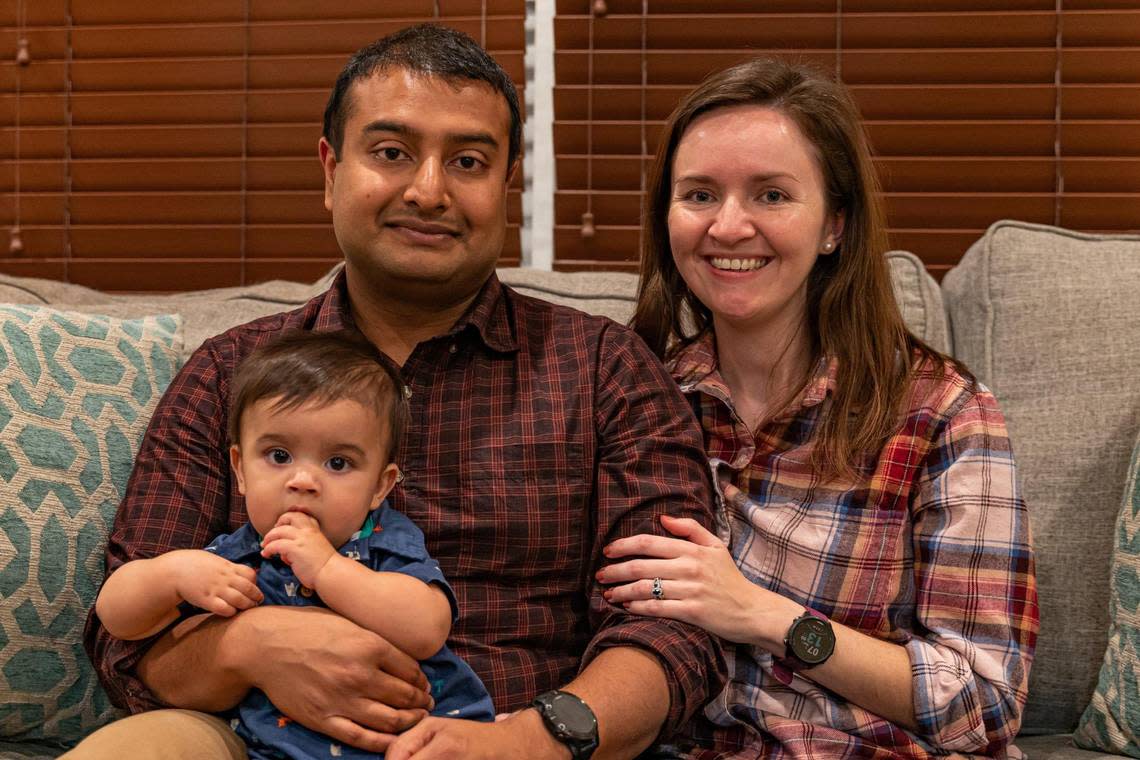‘The tipping point’: Four Miami-Dade professionals describe housing squeeze
Healthcare, food service, hospitality and many other public- and private-sector service workers struggle to live in Miami-Dade County’s overpriced housing market. College-educated and early-to-mid-career professionals also find it difficult to keep up with the soaring rents and home prices.
The Miami Herald recently posted an online query to readers, asking them to tell us how they’ve managed to make ends meet in one of the nation’s hottest housing markets. Fourteen people responded and voluntarily shared their personal financial plight.
The Herald narrowed the respondents to a group of four Miami-Dade residents that exemplified the diversity in our community — based on where they reside, profession, gender, age, race and ethnicity — and interviewed them to learn more about how they are coping with the monumental challenge of keeping a roof over their heads they can afford.
The four people are a hotel director of sales and catering, university faculty member, physician resident and a middle-school teacher, each earning between $64,000 and $75,000 a year. They are financially squeezed, although each earns substantially more than the county’s median household income of $59,044, the latest U.S. Census Bureau figure.
Their stories represent the thousands of area residents dealing with the financial pain of the ongoing housing crisis that began before the pandemic arrived in March 2020, but sharply worsened during the public health malaise. Across Miami-Dade, small business owners have said this year it’s been extremely difficult finding workers for entry-level and other positions, those typically paying minimum wage or marginally higher pay. Many of them have departed for other less-expensive communities inside and outside Florida.
“We have yet to see the [full] consequences of this housing market,” said housing expert Ned Murray, associate director of Florida International University’s Jorge M. Perez Metropolitan Center. “Once you get a degree and you’re a professional, you want to buy a home or at least rent something that is decent. If we can’t offer that in the housing market, they (residents) will find a housing market that does.”
Housing experts recommend buyers spend three-and-a-half times their annual income to buy a home, and 30% of pre-tax monthly household income on a monthly home rental. That means aspiring homeowners in Miami-Dade must earn about $110,000 annually to buy a condominium at the median sale price of $388,531, or $164,000 a year to buy a single-family house at the $575,000 midpoint price, according to the latest sales data from the Miami Association of Realtors.
Renters need to make $125,000 a year to pay the current average rent of $3,140 a month for a two-bedroom apartment in the Miami metropolitan area, according to Redfin, a digital site of real estate listings.
In the spring, both the city and county mayors declared a state of emergency over the housing affordability crunch. Since then policymakers like county Mayor Daniella Levine Cava have set aside millions to help those most cost-burdened and sought ideas from experts on what more to do to alleviate the peril.
Everything has to be on the table, Murray said, including a countywide rent freeze and caps on rent.
“We are at the tipping point where our whole economy is at risk,” he said. “If that’s not an emergency, I don’t know what is.”
Murray predicted a greater number of residents will leave Miami-Dade in 2023 priced out of the housing market. “People are holding on right now as best as they can,” he said. “They can only hold on for so much longer.”
Four residents’ housing plight

▪ Elizabeth Kidder Sanchez, 43, rents a three-bedroom house in Kendall for $2,900 a month. Earlier this year, the single mother and native Miamian had rented a house in Westchester, the neighborhood where she grew up. In the fall after her rent jumped by 45% and she couldn’t find another home there under $3,000 a month, she moved to Kendall. She works as a director of sales and catering at the Miami International Airport Hotel, earning a $70,000 annual salary. She also started her own jewelry brand Arroz Con Mango to supplement her income.

▪ Dr. Lawrence Rolle, 28, works as a medical resident at University of Miami Jackson Health System. Born in Daytona Beach and raised in Atlanta, Rolle moved to Miami in 2021 for his physician residency after graduating from medical school. Overwhelmed in the rental market and nearly facing homelessness, Rolle bought a three-bedroom house in May 2022 in Liberty City for $340,000. He relied on a special physician loan, requiring no money down, to buy the city home. He earns $64,000 a year.

▪ Holly Morganelli, 41, moved to Miami in 2014. Originally from Pennsylvania, Morganelli rented in Coral Gables for years before getting hit with a 37% rent hike. In January, she bought a one-bedroom condo in Coconut Grove for $222,000. Morganelli works as a librarian and adjunct professor at Florida International University, making $70,000 a year. She recently launched Manic in Miami, her side hustle, and a podcast focused on mental health.

▪ Tanjim Hossain, 31, came to Miami in 2013 to pursue his graduate studies at the University of Miami. Born in Bangladesh, Hossain grew up in Orlando after his family came to the United States when he was only two years old. Hossain and his wife, Christine Oliver, now live in North Miami in a two-bedroom house the couple bought in 2017 for $228,000. The couple wants a larger home in the same neighborhood for their growing family, which includes two cats, Daphne and Sofia. They can afford the down payment for a house, with a price tag up to $500,000. But they can’t afford the property taxes and insurance on a home at that price. Hossain teaches math and science at Carol City Middle School in Miami Gardens, making $75,000 a year. Oliver works as an environmental manager at Florida Department of Health and earns $75,000. Combined, the two make $150,000 a year.
Conversations about their housing challenges
▪ Question: What was it like navigating the Miami-area housing market this year?
Elizabeth Kidder Sanchez: My whole life is in Westchester. That’s where I wanted to be. I could not find anything.
Holly Morganelli: Inventory was extremely low. It was a leap of faith.
Dr. Lawrence Rolle: I rented for a year and the whole time I looked for a house, for something that made sense, affordable, reasonable. And there was nothing that existed. Homes that were reasonably priced, I went to see. They would have been financially manageable, but I got outbid each time. Everybody was putting cash over the asking price. I had no money to do that. It was discouraging.
Tanjim Hossain: The purchase price was not the problem. It’s the taxes and insurance. Right now we’re paying just under $10,000 for homeowners insurance and taxes. Taxes and insurance would be $30,000 in addition to the mortgage for a house priced around $500,000. That’s too much.
▪ Q: How has the housing crisis affected your lifestyle and future?
Kidder Sanchez: I don’t have the cash to spend. Activities with my daughter are limited. I have to pay so much money in rent that I can’t get up and go. I have to be much more calculated. Instead of going to the movies and buying any snack that she wants, then you have to think of things that are free or cheap, or see if someone invites me to something. I don’t have the same abilities to do whatever I want with my daughter. She loves to go out and eat. Every week we used to do a date night. Now date nights have dwindled from once a week to once a month.
Hossain: A quality daycare is $1,500 to $2,000 a month. We’ve relied on family to watch Ambrose, in order to build up our savings. It would make sense for us to move and not bother with another house in Miami-Dade. We moved here because Miami is Miami. It’s the Magic City. We love it here, but we can’t make it work, if it’s not sustainable.
▪ Q: Why is this such a critical problem?
Kidder Sanchez: Natives are being priced out. If I didn’t have my family here, I would move out. Two or three years ago, we lived normally. Now everyone is stretched so thin that it’s difficult doing the things that you’re accustomed to. It doesn’t matter if you went to school and studied.
Morganelli: I know of friends and colleagues whose rents have doubled in Miami Beach and Brickell. These are professionals who had 60 days to move out. It is terrible.
Rolle: From the bottom to the top, everybody is experiencing the housing crisis. People who are well into their careers, stable financially are losing their housing. If the person next to you isn’t doing good, you aren’t doing as good as you could be, or should be yourself. If people have a set level of being comfortable, you can achieve dreams and goals. If you don’t have that, you’re limited.
Hossain: These last couple of years with the pandemic, I think people have realized that we need people to do the basic jobs. You want your child to have a high quality teacher. But we’ve lost several teachers to Texas and Georgia. You need people from all walks of life for a society. People can’t afford to live here — it’s not just those who we think of with a lower income — it’s the college educated who can’t make it work.
▪ Q: What do you think are solutions to the problem?
Kidder Sanchez: The maximum rent increase should go up only a certain percentage each year. An $800 increase from one month to the next is just insane. I know other people whose landlords told them they have to pay them $1,000 next month. Some people can do that, but a lot of people can’t.
Morganelli: Legislators should implement some rent control.
Rolle: We need rent control. People’s rents are going up $1,000 a month with no changes to homes, no improvements. They want you to leave, so somebody else can sign that lease. It’s crazy. Help has to come from the government, the county, the mayor, the state.
